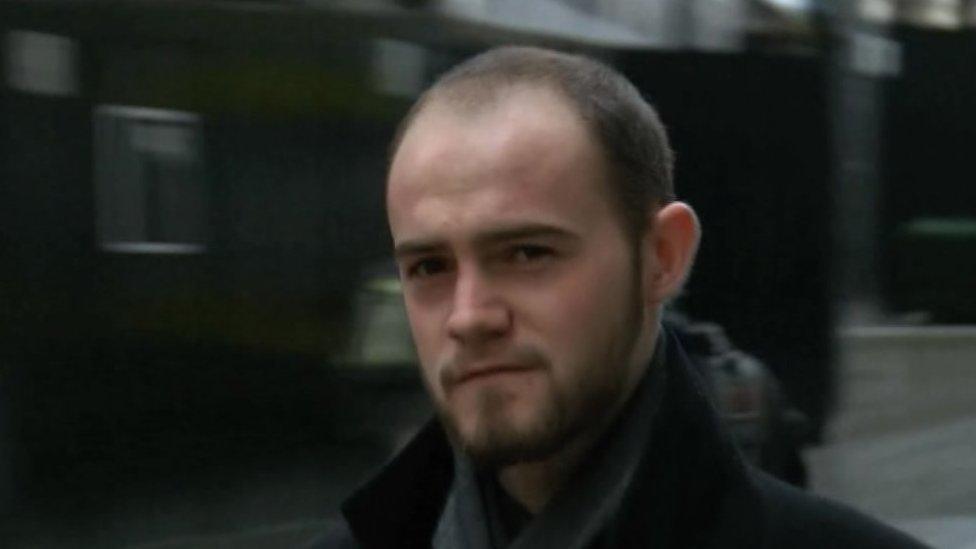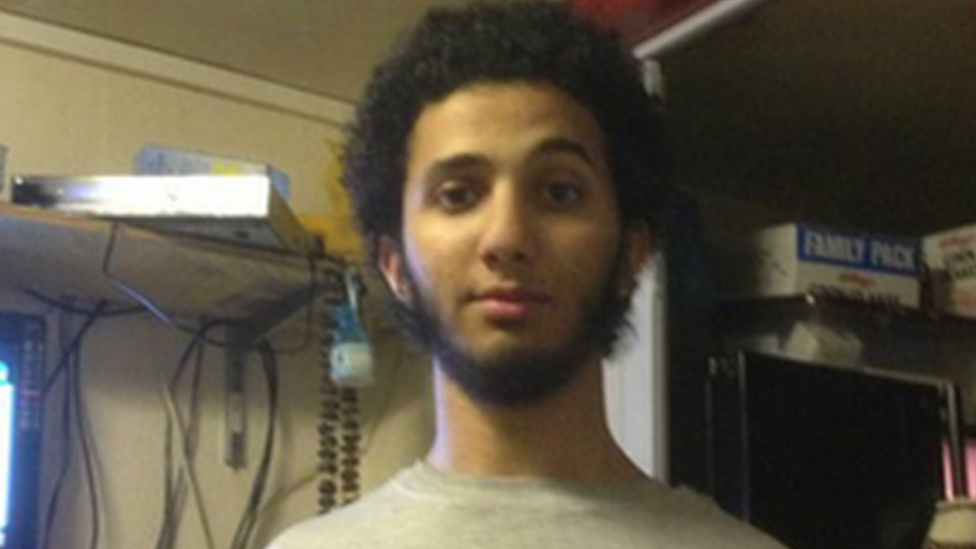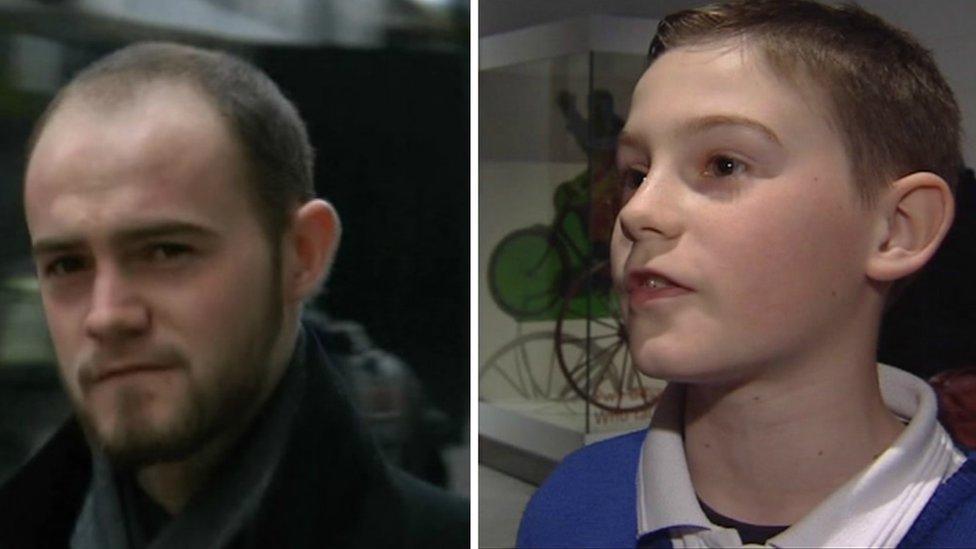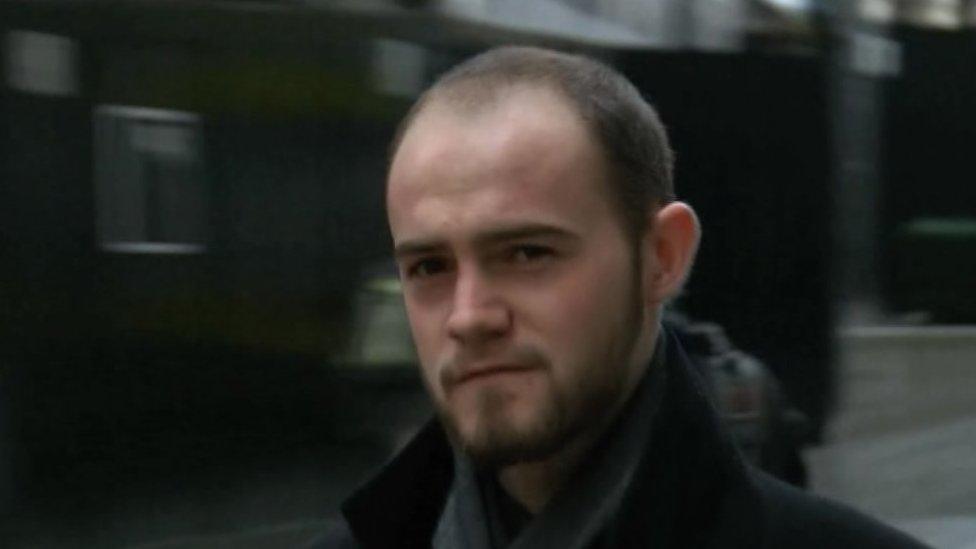Kristen Brekke: Cardiff terrorist jailed for breaches
- Published

Kristen Brekke was sentenced to four-and-a-half years in jail in 2016 for preparing terrorist acts, following a trial at the Old Bailey
A convicted terrorist has been sent back to jail after keeping secret financial accounts from authorities.
Kristen Brekke, 26, had been sentenced to four-and-a-half years in prison for preparing terrorist acts in 2016.
He was released in September 2017, and made subject to a notification requirement.
Brekke admitted four breaches of that requirement and was sentenced to nine months in jail.
He will also spend a further year on extended licence.
Brekke, brought up in Grangetown, Cardiff, was one of three men jailed for helping a teenage jihadi follow in his big brother's footsteps, and join so-called Islamic State fighters in Syria in 2014.
He worked in an ice cream parlour with Aseel Muthana, and supplied him with combat clothes.

Aseel Muthana travelled to Syria in 2014 to join his brother who was fighting for the so-called IS
Brekke admitted the breaches on dates in 2021 and 2022, by failing to tell police about two cars he was using, and about a Binance account he had opened, as well as a pre-paid card account provided by Pockit.
In mitigation, the court was told Brekke was trying to provide for his family but found it difficult due to his conviction.
Jacob Bindman, for Brekke said: "He made a couple of silly decisions over a short period of time, and drove his employer on a couple of occasions to his employment."
He said no money was transferred to or from the financial accounts.
'Offender of particular concern'
Sentencing him on 9 August, Judge Angela Rafferty said a probation report found Brekke "strongly resented" the notification requirement placed on him, and had sought to justify and minimise his behaviour.
She said he made efforts to "improve" his life, and complied with the order "until it became too difficult to do so", and then decided to "avoid the rigours" of what was required.
The judge told Brekke he was an "offender of particular concern", adding that the requirements were designed to monitor him to keep the public safe.
"It cannot be that terrorist offenders can have unmonitored access to financial accounts and vehicles," Judge Rafferty said.
"It is accepted no harm was caused, however, I do not accept the financial offences were close to reasonable excuse or technical breaches."
Related topics
- Published10 February 2016

- Published10 February 2016

- Published25 January 2016
